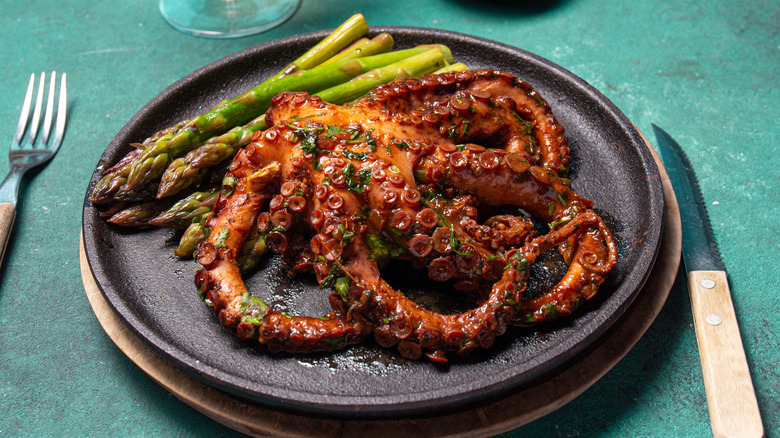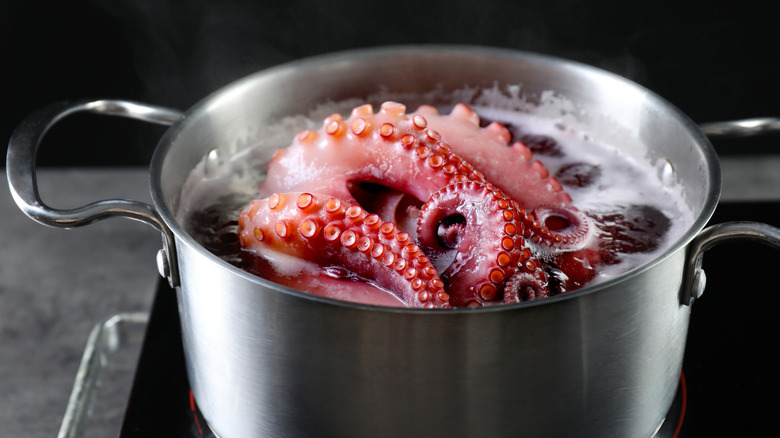How To Cook Octopus So It's Not A Chewy Bite Of Rubber
An octopus cooked just right is perfectly tender and flavorful enough to be served on its own or alongside salads, potatoes, or greens. However, cooking octopus isn't always smooth sailing, and not tenderizing it properly can mean it develops a disappointingly rubbery texture. (I've had chewy octopus served to me several times at restaurants, so getting it right is definitely a challenge.) However, there are a few simple methods which will give you perfectly tender octopus, and no, none of them involve slamming a dead octopus against rocks like they do in Greece.
The simplest method is cooking your octopus at a gentle simmer. The aim is to simmer it for between one and two hours, or until you can easily pierce the thickest tentacle with a knife. Using fresh or frozen octopus is completely fine for this method. (After all, frozen seafood is often better than fresh seafood.) If using fresh octopus, allow for a slightly longer cooking time. If you're using frozen octopus, make sure it's fully defrosted before you start simmering it. For those who want to be extra sure their octopus will turn out tender, you can add a tablespoon of vinegar to your simmering water; the acid will help tenderize the octopus' tissue. Once the octopus has simmered, you should finish it on the grill; octopus is one of the many foods that you can throw on the grill besides meat.
Other ways to tenderize octopus
If you don't have hours to spare, the best way to tenderize your octopus is to cook it in a pressure cooker (on a high pressure setting) for approximately 20 minutes. For those who are short on time and don't have a pressure cooker, you can blanch your octopus in boiling water. The water needs to be at a hard boil and contain no added salt or other ingredients. You can blanch it with the lid closed for around two minutes if it is a small octopus, five minutes if it is a medium-sized octopus, or 10 minutes if it is a large octopus.
Marinating the octopus in milk overnight can also help tenderize it; milk contains acids which break down proteins. This softens the octopus without making it mushy. Finally, if you want to get more hands on, you can place the octopus in a bag and gently roll over each tentacle with a rolling pin. Just don't get carried away; the goal is to tenderize the meat, not flatten it.

